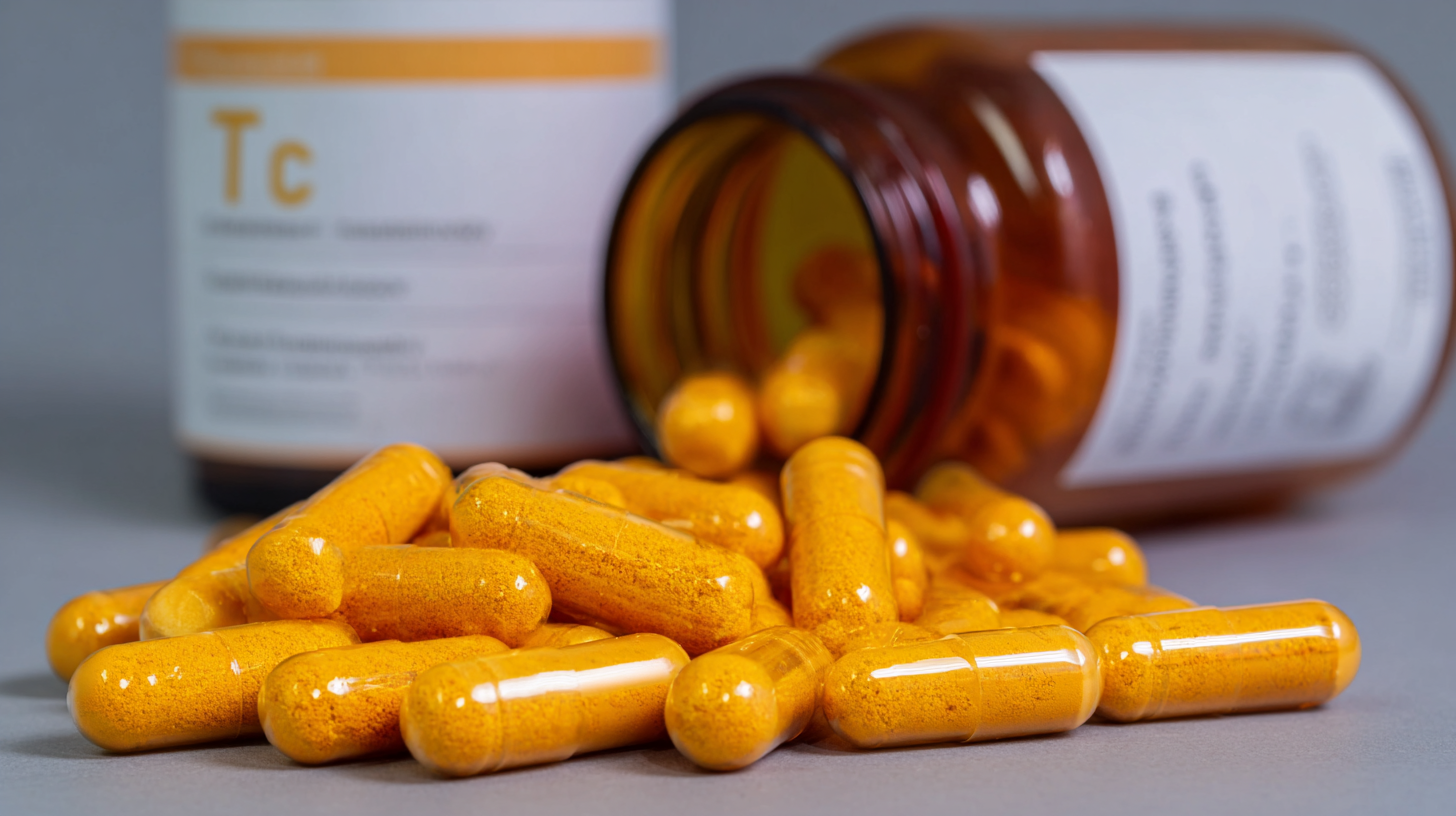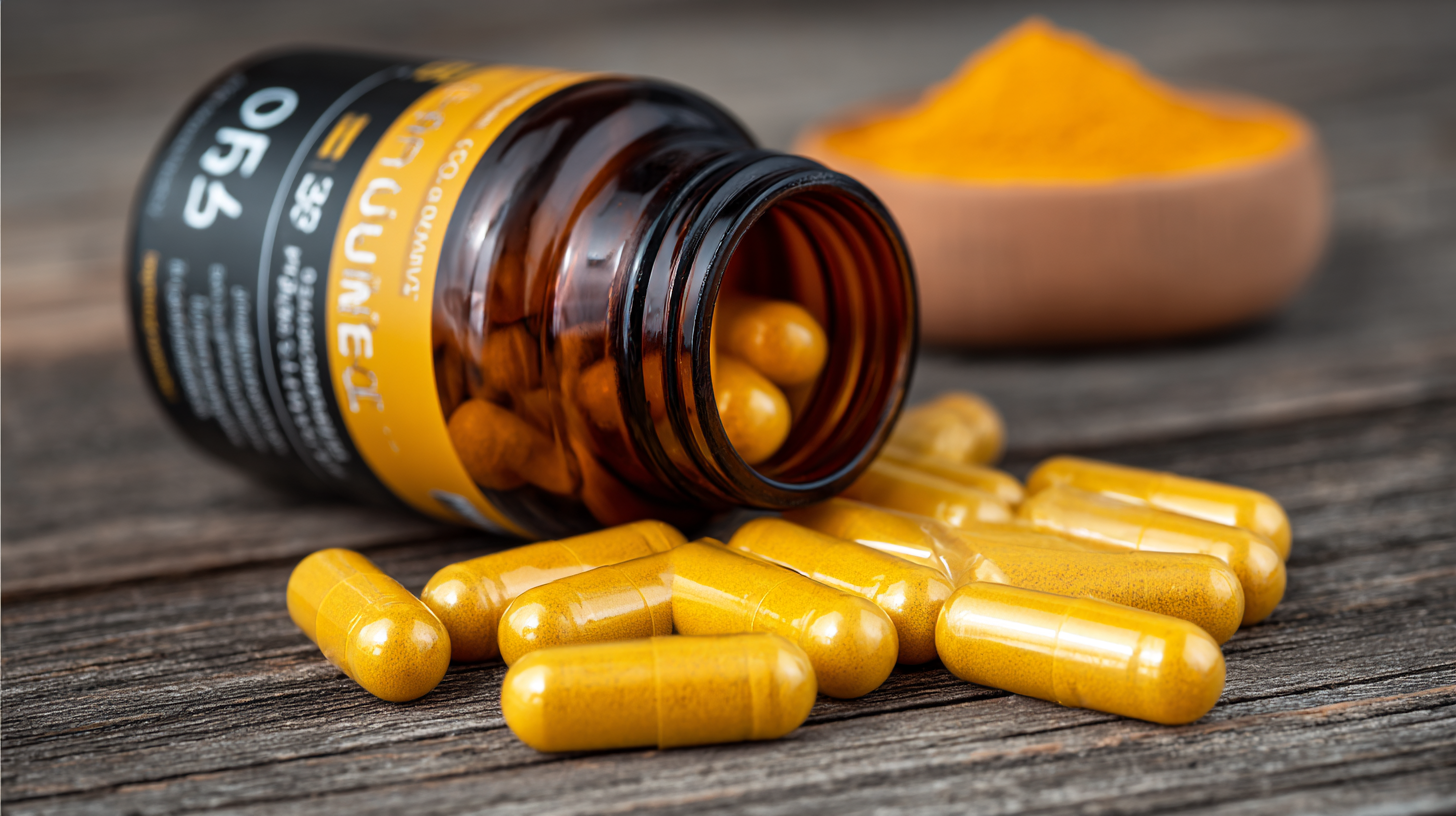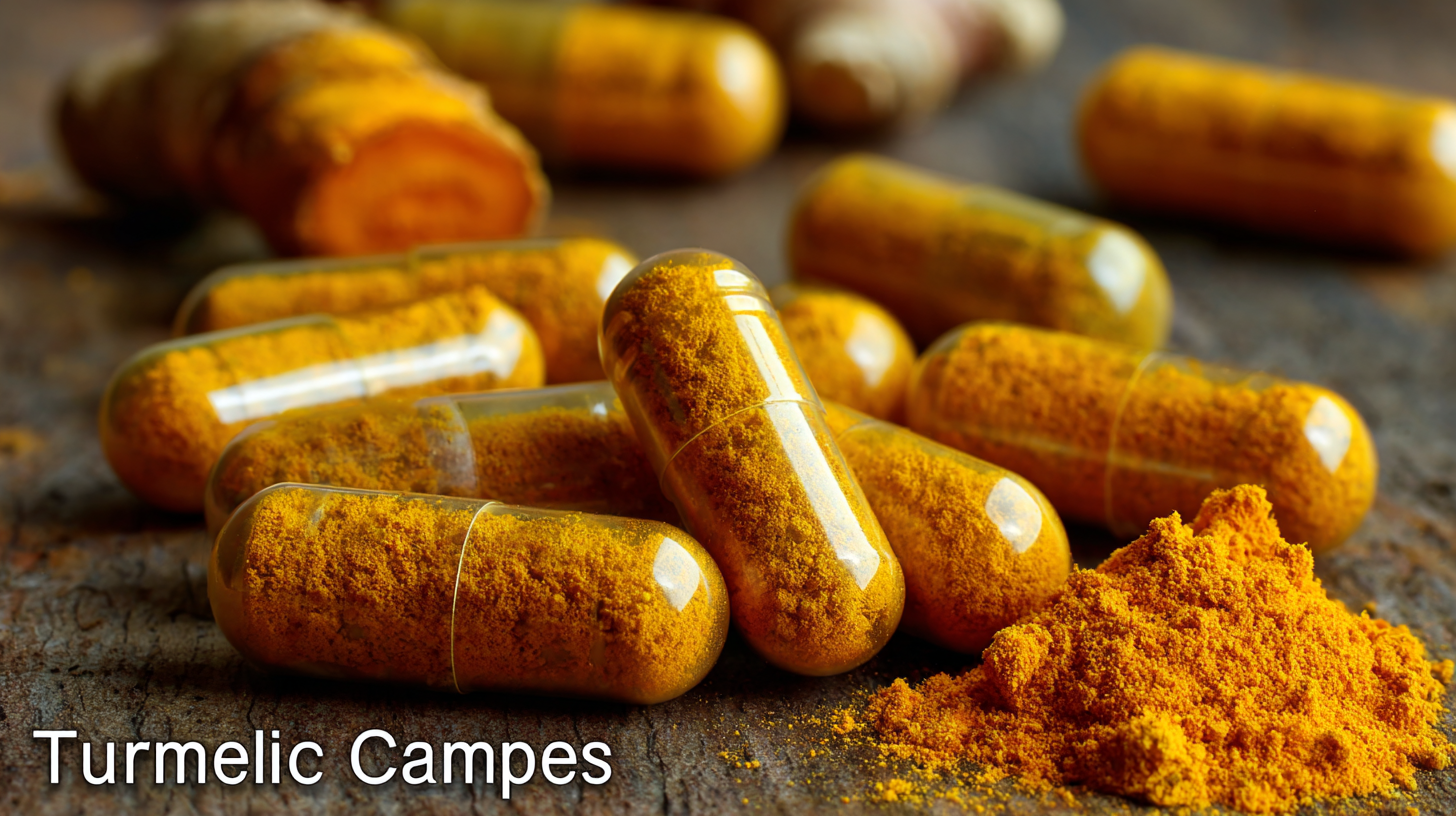50% Response rate
Addressing Common Issues with Turmeric Supplement Quality: Insights for Global Buyers
In recent years, the demand for turmeric capsules has surged globally, driven by increasing awareness of their health benefits, particularly their anti-inflammatory and antioxidant properties. According to a report by Grand View Research, the global turmeric market is projected to reach USD 1.5 billion by 2025, growing at a compound annual growth rate (CAGR) of 6.9%.

However, as the market expands, concerns regarding the quality and authenticity of turmeric supplements have come to the forefront. A study conducted by the University of Sydney found that over 40% of turmeric supplements tested did not meet label claims for curcumin content, highlighting a significant quality control issue. As more buyers turn to Chinese manufacturers for these products, it is essential to address these common quality issues, ensuring that consumers worldwide benefit from genuine, high-quality turmeric capsules that meet industry standards and regulations.
Importance of Sourcing High-Quality Turmeric Supplements for Global Consumers
When it comes to turmeric supplements, the importance of sourcing high-quality products cannot be overstated. Turmeric, especially its active component curcumin, offers numerous health benefits ranging from anti-inflammatory properties to antioxidant effects. However, the efficacy of these benefits heavily relies on the quality of the turmeric used in supplements. Global consumers must ensure that they select products sourced from reputable suppliers who adhere to stringent quality standards.
Unfortunately, not all turmeric supplements on the market are created equal. Many products may contain low-quality turmeric, fillers, or artificial additives that can dilute the potential health benefits. Furthermore, differences in growing conditions, processing methods, and extraction techniques can significantly impact the potency and purity of turmeric. Consumers are encouraged to seek out third-party testing and certifications that verify the quality and contents of turmeric supplements. By making informed decisions, global buyers can ensure they are investing in high-quality turmeric supplements that support their health and wellness goals.
Identifying Key Factors that Influence Turmeric Supplement Quality
When it comes to turmeric supplements, understanding the key factors that influence their quality is paramount for global buyers. A recent study by the National Institute of Health highlighted that the curcumin content, typically the active ingredient in turmeric, can vary significantly between products, from as low as 3% to upwards of 95%. This discrepancy greatly affects the efficacy of the supplement, underscoring the importance of sourcing turmeric from reputable suppliers who conduct rigorous testing to ensure consistent curcumin levels.
Another critical factor is the extraction method used in processing turmeric. Research published in the Journal of Food Science shows that solvents like ethanol can yield higher concentrations of curcuminoids compared to traditional mechanical extraction methods. Additionally, the purity and presence of additives or fillers can further complicate quality assessments. A 2020 survey revealed that approximately 30% of turmeric supplements contained undisclosed ingredients or contaminants, which can undermine consumer trust and safety. Therefore, buyers must prioritize transparency in ingredient sourcing and production techniques when selecting high-quality turmeric supplements.

Quality Control Measures in the Turmeric Supply Chain
When sourcing turmeric supplements, understanding the quality control measures in the turmeric supply chain is essential for global buyers. The journey from farm to shelf involves multiple stages, each with its own set of quality control protocols. Employing rigorous testing at the harvesting stage ensures that only the best rhizomes make it through. Buyers should seek suppliers who utilize advanced techniques such as High-Performance Liquid Chromatography (HPLC) to analyze curcumin levels and detect potential contaminants, ensuring the supplements meet health standards.
Additionally, proper handling and storage during transportation are critical in maintaining turmeric's potency. Cool and dry conditions can prevent degradation, while timely shipping minimizes exposure to adverse environmental factors. Quality assurance should also extend to the manufacturing process, where adhering to Good Manufacturing Practices (GMP) can prevent cross-contamination and assure consistency in product formulation. Therefore, global buyers must prioritize suppliers who are transparent about their quality control measures, fostering trust and ensuring the effectiveness of the turmeric supplements they provide to consumers.
Quality Control Measures in the Turmeric Supply Chain
This bar chart illustrates the effectiveness percentage of various quality control measures implemented throughout the turmeric supply chain, highlighting key areas from sourcing to distribution.
Understanding Certification Standards for Turmeric Products
When sourcing turmeric supplements, understanding certification standards is crucial for ensuring product quality and safety. Different regions have varying regulations, but commonly recognized certifications include USDA Organic, Non-GMO Project Verified, and NSF International. These certifications can help buyers discern high-quality turmeric products from those that may be contaminated or adulterated.
Tip: Always check for third-party testing results before making a purchase. This information can provide insights into the purity and potency of the turmeric supplement, verifying that it meets industry standards.
In addition to certifications, it's essential to consider the sourcing and production practices of the turmeric brand. Sustainable sourcing not only supports ethical practices but can also impact the quality of the final product. Brands that provide transparency regarding their suppliers and production processes often take greater care to ensure their products are free from harmful additives.
Tip: Research the brand’s origin and their commitment to quality. Look for companies that provide detailed information about their turmeric sourcing, which can enhance your confidence in the product's integrity.
Addressing Common Issues with Turmeric Supplement Quality: Insights for Global Buyers
| Certification Standard | Description | Importance | Common Issues |
|---|---|---|---|
| USDA Organic | Indicates that the turmeric product is made from organic ingredients without synthetic fertilizers or pesticides. | Assures consumers of sustainability and health-safe products. | Possible contamination with non-organic substances. |
| GMP Certified | Good Manufacturing Practices compliance ensures quality control in production. | Reduces risk of contamination and ensures accurate labeling. | Inconsistent product quality and safety hazards. |
| ISO Certification | International Organization for Standardization certification for consistent quality and safety. | Indicates a commitment to quality and customer satisfaction. | Variability in product formulation and quality oversights. |
| Non-GMO Project Verified | Confirms that the turmeric product is free from genetically modified organisms. | Attracts health-conscious consumers. | Risks of unverified sourcing of turmeric. |
| Third-party Testing | Products are tested by an independent lab for potency and contamination. | Enhances trust and transparency in the product. | Lack of rigorous testing and verification can lead to trust issues. |
Challenges and Solutions in Turmeric Supplement Manufacturing in China
The turmeric supplement market, particularly in China, faces numerous challenges related to manufacturing quality. With the surging demand for curcumin, especially across the Asia Pacific region, it is essential for global buyers to recognize and address these issues. According to recent projections, the global curcumin market is anticipated to expand from US$ 131.3 billion in 2025 to US$ 288.5 billion by 2032, showing a remarkable compound annual growth rate (CAGR) of 11.9%. This rapid growth underscores the importance of maintaining high manufacturing standards to meet the increasing consumer expectations.

In Chinese manufacturing, common issues include contamination during production, variations in curcumin concentration, and inadequate quality control measures. To overcome these hurdles, manufacturers must implement stringent quality assurance protocols and invest in advanced extraction techniques. Furthermore, fostering transparency throughout the supply chain can enhance trust and ensure that the final products meet the regulatory standards demanded by international markets. By addressing these manufacturing challenges, suppliers can better position themselves in the competitive turmeric supplement landscape and capitalize on the growing global demand.